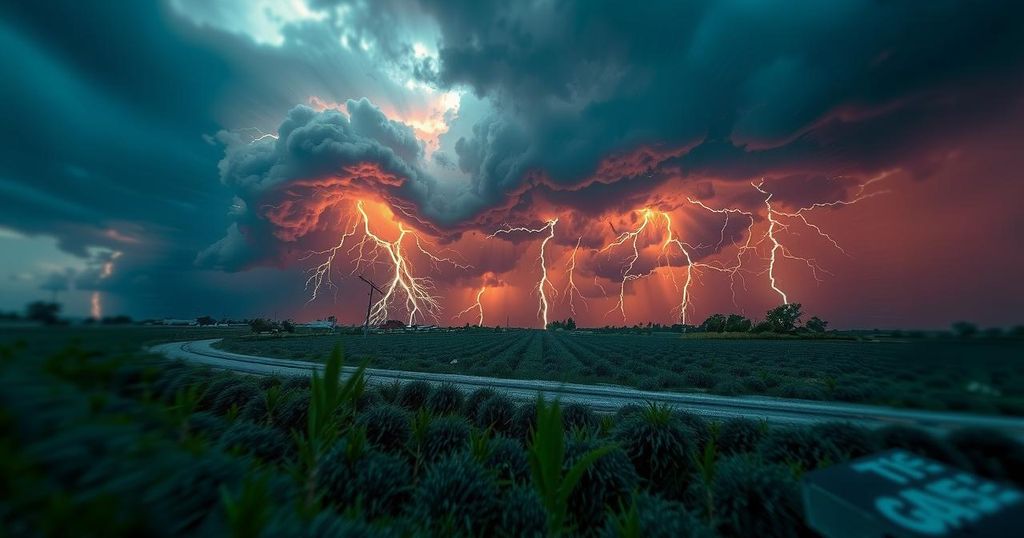Impact of Climate Change on Extreme Weather: A Study on Global Mortality

A new study by scientists at Imperial College London reveals that climate change has intensified the ten deadliest extreme weather events in the past twenty years, leading to over 570,000 deaths globally. Significant events analyzed include the 2011 Somali drought, European heatwaves in 2015, 2022, and 2023, and tropical cyclones in Bangladesh, Myanmar, and the Philippines. The findings underscore the necessity for better climate change preparedness and a transition away from fossil fuels.
A recent analysis conducted by the World Weather Attribution (WWA) group at Imperial College London has revealed that human-induced climate change has exacerbated the intensity and likelihood of the ten deadliest extreme weather events recorded over the last two decades. Collectively, these catastrophic events—which included storms, heatwaves, and floods—accounted for the deaths of over 570,000 individuals across Europe, Africa, and Asia. The study underscores scientists’ growing ability to identify the influence of climate change on complex weather phenomena, an understanding largely attributed to the innovative modelling methods developed by Dr. Friederike Otto and Dr. Geert Jan van Oldenborgh, founders of WWA. Among the events analyzed, the 2011 drought in Somalia emerged as the most lethal, claiming more than 250,000 lives, with researchers attributing the severe reductions in rainfall to climate change. Other significant events include the 2015 heatwave in France, which resulted in over 3,000 fatalities, and the extreme heat events in Europe in 2022 and 2023 that led to 53,000 and 37,000 deaths respectively. The study points out that the 2023 heatwave’s occurrence would have been improbable in the absence of climate change. Furthermore, the findings indicate that deadly tropical cyclones that struck Bangladesh, Myanmar, and the Philippines in the late 2000s were also intensified due to climate change. The researchers cautioned that the actual death tolls are likely underreported, particularly in poorer nations where heatwave-related fatalities are often not officially recorded. Dr. Otto emphasized the need for political leaders to reconsider fossil fuel reliance, stating, “If we keep burning oil, gas and coal, the suffering will continue.” Additionally, the study serves as a stark reminder of the inadequacies in global preparedness for increasing temperatures, with Roop Singh from the Red Cross Red Crescent Climate Centre warning that the continued rise in global temperatures will provoke increasingly severe weather conditions, thereby endangering more lives.
The phenomenon of climate change has been linked to the increasing frequency and severity of extreme weather incidents worldwide. Scientific studies have consistently shown that rising global temperatures lead to changes in atmospheric conditions that can exacerbate natural disasters. In recent years, significant strides in understanding the specific contributions of anthropogenic climate change to individual weather events have been made. The WWA’s methodological advancements have allowed for detailed assessments of how climate change influences extreme weather events, leading to essential insights regarding preparedness and resilience strategies against future climate-related disasters.
This analysis presents compelling evidence that climate change is not merely a future concern but already contributes significantly to the intensity and frequency of extreme weather events that threaten lives. It calls for immediate action from policymakers to transition away from fossil fuel dependency and enhance global preparedness for escalating climate risks. As noted by experts, the increasing death tolls underscore the urgent need for countries to strengthen their resilience to climate change impacts.
Original Source: www.bbc.com






